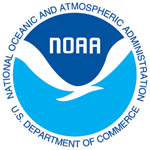United States Department of Commerce

National Oceanographic and Atmospheric Administration: Technical Reports and Related Materials
Date of this Version
12-2022
Document Type
Article
Citation
Bulletin of the American Meteorological Scoiety (December 2022) 103(12): E2,791-E2,803
Abstract
Spanish-speaking populations in the United States are more vulnerable in disaster contexts due to inequities, such as language barriers, that prevent them from receiving life-saving information. For the past couple of decades, governmental organizations have addressed these issues by translating weather watches, warnings, and advisories into Spanish. Previous studies suggest that these Spanish translations do not communicate the same level of urgency as their English counterparts. To identify whether these translated products result in inequities between English and Spanish speaker reception and comprehension of forecast information, we asked a representative sample of U.S. English (n = 1,550) and Spanish (n = 1,050) speakers to correctly identify the translations of weather watches and warnings and found significant language inequities. Additionally, we asked U.S. Spanish speakers to indicate the urgency they felt when shown different Spanish words used in weather watch and warning translations. When presented with various translations for watch and warning terminology, respondents consistently rated aviso, the current translation of warning by the NWS and FEMA, as less urgent than many other alternatives. Additionally, the current translation of advisory, advertencia, communicated more urgency than both existing watch and warning translations in Spanish. To increase the effectiveness of severe weather messaging in multilingual contexts, translations should take into consideration factors such as culture and dialects of Spanish speakers in the United States and focus on translating the meaning, not the words, of key risk statements in weather products. We recommend vigilancia for “watch” and alerta for “warning” as research-supported terminologies to communicate urgency in Spanish.
Included in
Atmospheric Sciences Commons, Broadcast and Video Studies Commons, Climate Commons, Communication Technology and New Media Commons, Critical and Cultural Studies Commons, Emergency and Disaster Management Commons, Gender, Race, Sexuality, and Ethnicity in Communication Commons, Mass Communication Commons, Meteorology Commons, Social Justice Commons


Comments
United State government work